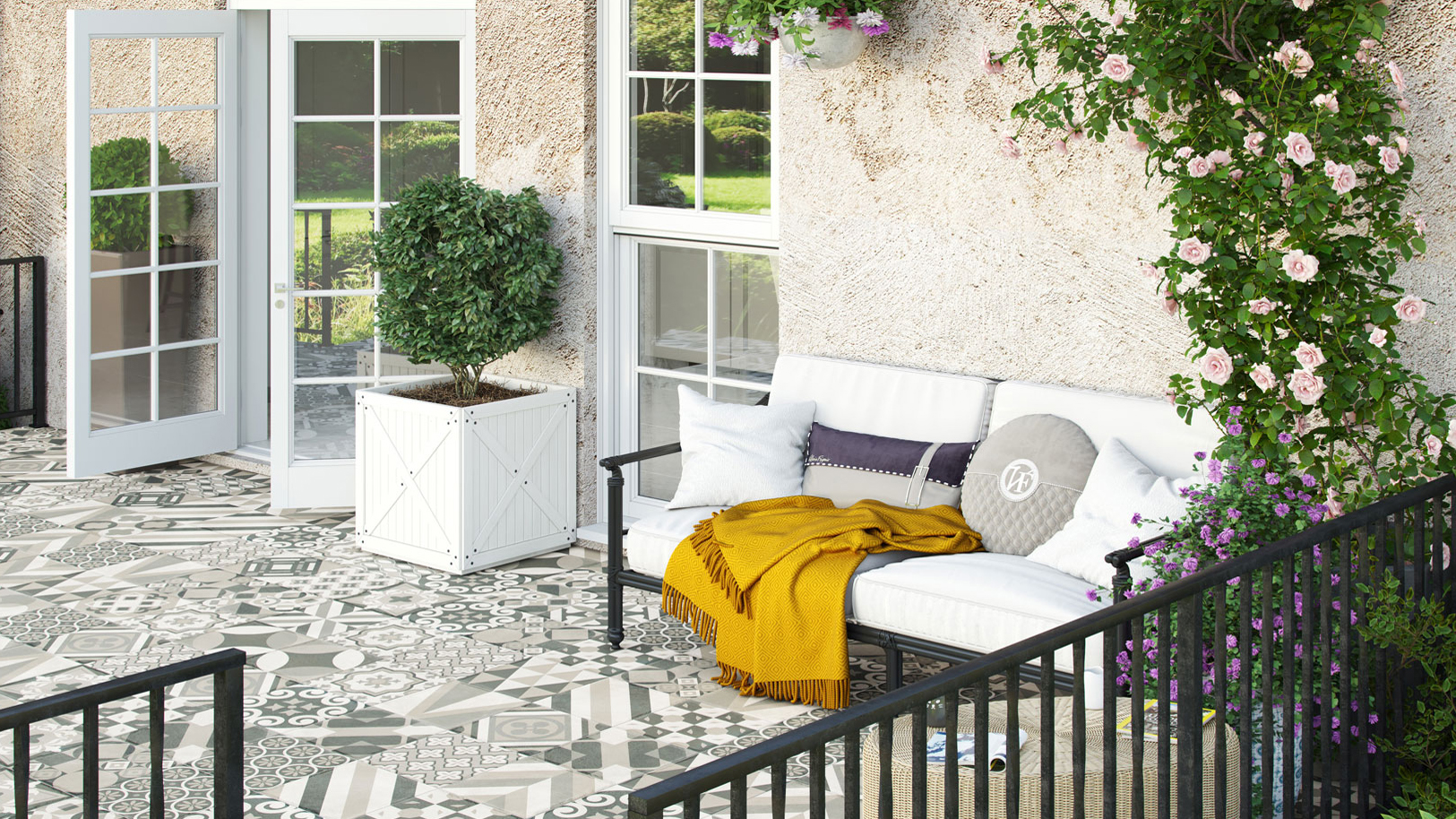The Balcony Gardener shares her five simple steps to a successful balcony garden
Renowned balcony gardener Isabelle Palmer reveals how to create a green kingdom in the heart of an urban jungle


The Livingetc newsletters are your inside source for what’s shaping interiors now - and what’s next. Discover trend forecasts, smart style ideas, and curated shopping inspiration that brings design to life. Subscribe today and stay ahead of the curve.
You are now subscribed
Your newsletter sign-up was successful
It's that time of the year when people begin to revisit their gardens to prepare for the warmer seasons ahead.
It seems this is true, now, more than ever, as an increasing number of people are taking to the outdoors, according to the Royal Horticultural Society. The charity recently revealed that over a quarter of those surveyed had invested in their garden for the first time in 2020 - highlighting the vast 'benefits to people's mental and physical health.'
But why should people living in a city miss out on all the fun? Well, according to the celebrated gardener and author Isabelle Palmer, best known as The Balcony Gardener, they don't have to miss out after all.
Get behind this garden trend by following Isabelle's five quick steps to a balcony garden below. You can also read our clever balcony decorating ideas feature for more advice.
Isabelle Palmer's balcony garden tips
1. Think about the purpose of the space
A post shared by The Balcony Gardener (@thebalconygardener)
A photo posted by on
'You need to begin by thinking about what you want to use the space for,' The Balcony Gardener began.
'Quite often, balconies are incredibly tiny, so they're usually a place where you would sit and relax. However, you can use a garden balcony strategically to screen off sections of a view that you don't particularly want to see, which is often the case in cities. Or use a balcony purposely - to grow herbs or something to eat. Think about zoning your balcony and how to use the space for one specific purpose.'
'Before you buy any plants, It's also essential to check that you can place plants on your balcony or roof terrace. If in doubt, check with a structural engineer to ensure your balcony is safe,' Isabelle highlighted.
The Livingetc newsletters are your inside source for what’s shaping interiors now - and what’s next. Discover trend forecasts, smart style ideas, and curated shopping inspiration that brings design to life. Subscribe today and stay ahead of the curve.
2. Create a flow between the indoor/outdoor spaces
A post shared by The Balcony Gardener (@thebalconygardener)
A photo posted by on
'If you have a nice cushion, a picture, or something that is quite vivid in your room, you should use that to dictate the color of your balcony,' Isabelle shared before offering an example.
'I have a bookshelf painted in Farrow & Ball's French Grey, so I covered my pots and my balcony balustrade in the same shade. This completes the flow between my living room and balcony.'
3. Choose the plant size strategically
A post shared by The Balcony Gardener (@thebalconygardener)
A photo posted by on
Following her suggestion that we should zone your balcony, Isabelle urges us to choose plants that mirror the space's primary purpose.
'I would choose a trailing plant to screen off a section of your view, and I would use bamboo in a sunny area. You could use a lorrell plant if you live somewhere that's a bit windier.'
She expanded: 'People often think it's a good idea to start with lots of little plants, but this creates more work. Rather than spending time feeding and watering lots of tiny pots, you should invest in one big pot and use all your energy on that instead.'
See: 24 Small garden ideas - how to be stylish no matter how little your outdoor space
4. Think about the colors
A post shared by The Balcony Gardener (@thebalconygardener)
A photo posted by on
'Choose the colors that you love, but don't go too vivid. Instead, restrict your palette to around three different colors that work well with each other,' Isabelle began.
She then suggested which shades will make your balcony feel bigger:
'When you've got a small space, you want to emphasize this and not make it look overly busy. Lighter flowers really open up a space, so put your lightest flowers at the furthest point so that your eyes are drawn outwards.'
The Balcony Gardener then focused on specific plant species, saying: 'I would always have an evergreen palette so you can maintain your garden all year round - choose things like gymeas and yuccas, ivy, and waxy leaf plants because they are more durable in terms of gardening.'
'Ferns are great if you have a shadier area, and a fatsia japonica plant looks wonderful, but it does grow quite big, so you need to cut it down regularly. Eucalyptus also works well if you want one bold plant. I would recommend using pansies for a ground cover because they are great filler plants,' she added.
5. Maintain your plants
A post shared by The Balcony Gardener (@thebalconygardener)
A photo posted by on
Isabelle finished on what is, perhaps, the most important tip of all - how to keep your balcony alive.
'Just remember to stay on top of the watering and feeding,' she stated.
See: Modern Garden Ideas: 37 modern design ideas to transform your outdoor space
'In the end, balcony gardening is just about having a bit of fun. Include plants you like and don't take it too seriously,' says Isabelle. 'Everybody fails, even the best gardeners, so that's why you need to take things slowly and build up your confidence with time.'

Megan is the Head of Celebrity Style News at Homes & Gardens. She first joined Future Plc as a News Writer across their interiors titles, including Livingetc and Real Homes, before becoming H&G's News Editor in April 2022. She now leads the Celebrity/ News team.
Before joining Future, Megan worked as a News Explainer at The Telegraph, following her MA in International Journalism at the University of Leeds. During her BA in English Literature and Creative Writing, she gained writing experience in the US whilst studying in New York. Megan also focused on travel writing during her time living in Paris, where she produced content for a French travel site.
Megan currently lives in London, where she relocated from her hometown in Yorkshire. In her home, she experiments with interior design trends and draws inspiration from the home decor ideas she observes in her everyday work life. Her favorite pieces include her antique typewriter and her expansive collection of houseplants. When she isn’t writing, she is browsing London’s coffee shops and bookstores to add to her ever-growing library, taking over the open shelving in her apartment.